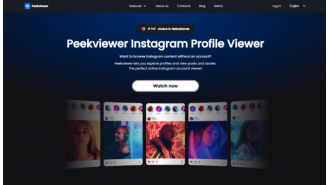I posted a lot about my daughter on the internet and she started to believe she was a celebrity.
Nine-year-old child didn't want their conversations posted on Facebook during a pub lunch five years ago.

Elaine Kasket was a devoted parent, always eager to share pictures and stories of her daughter on social media. However, one day at a pub lunch, her nine-year-old daughter expressed her discomfort with her mother's online posts. Elaine couldn't help but feel uneasy as she realized that her daughter had been dropping hints about her discomfort for some time. But she had brushed it off and continued to share. When Elaine asked her daughter what should be done about the already shared posts, she was met with a surprising response.
Her daughter, with a wry smile, suggested that the posts should be deleted immediately and the parents should be put on the "naughty step." Elaine was taken aback and felt a wave of guilt wash over her. Was she really deserving of being on the "naughty step"? Or was it the thought of deleting the carefully curated memories of her family that made her feel sick? Perhaps it was the realization that she may never be able to share her daughter's life on social media again.
For those who are unfamiliar, "sharenting" is a term used to describe the practice of parents sharing their children's information online. While some parents do it for profit, others simply want to share their family life with others. Elaine fell into the latter category when she shared her daughter's sonogram on Facebook back in 2009, which marked the beginning of her sharenting habit.
As her daughter grew and became more verbal and hilarious, Elaine couldn't resist sharing more and more. The likes and positive comments she received only encouraged her to share even more. As an expat living in the UK, social media was a way for Elaine to stay connected with her extended family and for her parents to bond with their granddaughter who they rarely saw in person.
Elaine doesn't blame herself for her sharenting habits. Back then, social media was still new, and sharing about one's kids was seen as the norm. But as a cyberpsychologist, she couldn't help but wonder about the impact of her social media use on her daughter. Was she using her daughter to fulfill her own social needs? And could her daughter sense that?
The reality is that young people's data is highly valuable and can have significant consequences for their future. Yet, they are unable to provide consent for its use as they are not yet able to understand the risks. Sadly, many adults who share their children's information online are also unaware of the consequences.
Elaine began to question her own actions and the impact they were having on her daughter. She realized that her daughter never gave permission for her photos and stories to be shared. What was she teaching her daughter about consent and boundaries by posting without her permission? She also noticed that her daughter would often hide or cover her face when the phone came out, and she would ask if the photos were being shared with everyone.
But it wasn't until Elaine's daughter told her that she didn't think she would stop sharing that Elaine realized the impact of her actions. She decided to delete all of her social media posts about her daughter and never shared anything about her again. This decision brought relief to her daughter, especially as she entered adolescence and became more aware of her own boundaries.
As her daughter grew and became more assertive and savvy about her own boundaries, Elaine realized that their conversation had helped her get there. She is now proud of her daughter for having the courage to speak up, and their relationship is stronger because of it.
Thankfully, the tide is turning, and more parents are becoming cautious about sharing sensitive information about their children online. Data, identity, and power are all intertwined in the digital world, and it is important for parents to protect their children's privacy until they are able to do so themselves. After all, choosing what to share online should be a personal choice, and children should have the right to privacy and consent before their information is shared.










